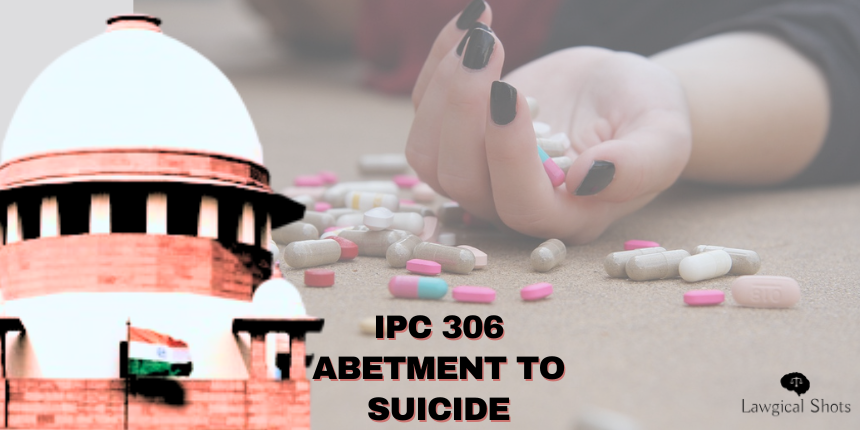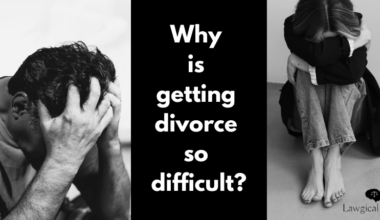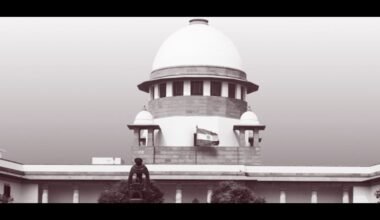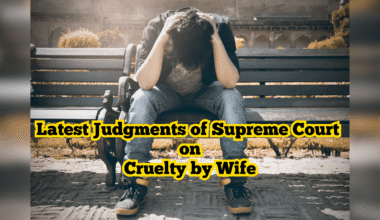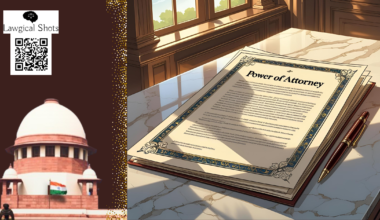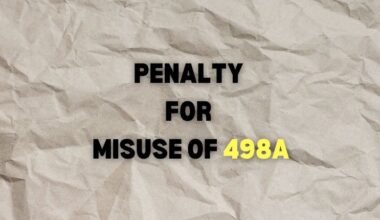Hey Criminal Lawyer…..why do you need Supreme Court judgments on IPC Section 306? The Courts in India have often discussed the fact that attempt to suicide is punishable in India. However, when the attempt is succeeded and the person dies, the laws aim at finding the abettor since the person who attempted suicide goes beyond the reach of law. The allegations can be disturbing on a person who just had a heated argument with a person and comes to know about his/her suicide the next day. In such circumstances, abetment of suicide landmark cases can help criminal advocates of the accused to bring something in defense for his/her clients and safeguard their interests. Here, we have compiled some landmark judgments on Section 306 IPC which may assist.
Supreme Court Judgments on IPC Section 306
Suicide not always abetted
The Supreme Court judgment on IPC Section 306 in Kumar @ Shiva Kumar v. State of Karnataka (decided on March 1, 2024) discussed about the various reasons due to which a person may commit suicide. The Court explained that “There can be myriad reasons for a man or a woman to commit or attempt to commit suicide: it may be a case of failure to achieve academic excellence, oppressive environment in college or hostel, particularly for students belonging to the marginalized sections, joblessness, financial difficulties, disappointment in love or marriage, acute or chronic ailments, depression, so on and so forth. Therefore, it may not always be the case that someone has to abet commission of suicide. Circumstances surrounding the deceased in which he finds himself are relevant.”
Different people react differently; intent and action to be proved
Speaking of Supreme Court Judgments on IPC Section 306, the Supreme Court decision in Chitresh Kumar Chopra v. State (decided on August 10, 2009) holds significance. The Bench here explained that different individuals in the same situation react and behave differently because of the personal meaning they add to each event, thus accounting for individual vulnerability to suicide. In this abetment of suicide landmark case, the Apex Court held that “To prove that the accused abetted commission of suicide by a person, it has to be established that: (i) the accused kept on irritating or annoying the deceased by words, deeds or wilful omission or conduct which may even be a wilful silence until the deceased reacted or pushed or forced the deceased by his deeds, words or wilful omission or conduct to make the deceased move forward more quickly in a forward direction: and (ii) that the accused had the intention to provoke, urge or encourage the deceased to commit suicide while acting in the manner noted above. Undoubtedly, presence of mens rea is the necessary concomitant of instigation.”
Word uttered in a fit of anger not instigation
In Ramesh Kumar v. State of Chhattisgarh (decided on October 17, 2001), an important milestone was laid among the Supreme Court judgments on IPC Section 306. Here, the Court stated that “Instigation is to goad, urge forward, provoke, incite or encourage to do ‘an act’. To satisfy the requirement of instigation though it is not necessary that actual words must be used to that effect or what constitutes instigation must necessarily and specifically be suggestive of the consequence. Yet a reasonable certainty to incite the consequence must be capable of being spelt out……Where the accused by his act or omission or by his continued course of conduct creates a situation that the deceased is left with no other option except to commit suicide, then instigation may be inferred. A word uttered in a fit of anger or emotion without intending the consequences to actually follow cannot be said to be instigation”.
Also read – Landmark Judgments on Amendment of Pleadings
Active or direct act must lead to commit suicide
The Supreme Court in Naresh Kumar v. State of Haryana (decided on February 22, 2024) stated that “It is now well settled that in order to convict a person under Section 306 of the IPC there has to be a clear mens rea to commit the offence. Mere harassment is not sufficient to hold an accused guilty of abetting the commission of suicide. It also requires an active act or direct act which led the deceased to commit suicide. The ingredient of mens rea cannot be assumed to be ostensibly present but has to be visible and conspicuous.”
While imposing the duty over Courts, it further explained that “The court should be extremely careful in assessing evidence under section 113A for finding out if cruelty was meted out. If it transpires that a victim committing suicide was hyper sensitive to ordinary petulance, discord and differences in domestic life quite common to the society to which the victim belonged and such petulance, discord and differences were not expected to induce a similarly circumstanced individual in a given society to commit suicide, the conscience of the Court would not be satisfied for holding that the accused charged of abetting the offence of suicide was guilty……. The court must remain very careful and vigilant in applying the correct principles of law governing the subject of abetment of suicide while appreciating the evidence on record. Otherwise it may give an impression that the conviction is not legal but rather moral.”
Teacher reprimanding student for indiscipline not an offence under Section 306 IPC
Geo Varghese v. State of Rajasthan (decided on October 5, 2021) proves to be a landmark decision on abetment of suicide by the Supreme Court. Here, the Court emphasised upon the requirements that “What is required to constitute an alleged abetment of suicide under Section 306 IPC is there must be an allegation of either direct or indirect act of incitement to the commission of offence of suicide and mere allegations of harassment of the deceased by another person would not be sufficient in itself, unless, there are allegations of such actions on the part of the accused which compelled the commission of suicide. Further, if the person committing suicide is hypersensitive and the allegations attributed to the accused is otherwise not ordinarily expected to induce a similarly situated person to take the extreme step of committing suicide, it would be unsafe to hold the accused guilty of abetment of suicide. Thus, what is required is an examination of every case on its own facts and circumstances and keeping in consideration the surrounding circumstances as well, which may have bearing on the alleged action of the accused and the psyche of the deceased.”
The Supreme Court further added that “If, a student is simply reprimanded by a teacher for an act of indiscipline and bringing the continued act of indiscipline to the notice of Principal of the institution who conveyed to the parents of the student for the purposes of school discipline and correcting a child, any student who is very emotional or sentimental commits suicide, can the said teacher be held liable for the same and charged and tried for the offence of abetment of suicide under section 306 IPC. Our answer to the said question is ‘No’.”
Mens rea to be examined by actual acts and deeds
The Supreme Court judgment on IPC Section 306 in Ude Singh v. State of Haryana (decided onJuly 25, 2019) sought to bring some clarity upon law surrounding abetment to suicide. The Court delineated and even criticised the menace of eve-teasing and explained that “If the accused plays an active role in tarnishing the self-esteem and self-respect of the victim, which eventually draws the victim to commit suicide, the accused may be held guilty of abetment of suicide. The question of mens rea on the part of the accused in such cases would be examined with reference to the actual acts and deeds of the accused and if the acts and deeds are only of such nature where the accused intended nothing more than harassment or snap show of anger, a particular case may fall short of the offence of abetment of suicide. However, if the accused kept on irritating or annoying the deceased by words or deeds until the deceased reacted or was provoked, a particular case may be that of abetment of suicide……human mind could be affected and could react in myriad ways; and impact of one’s action on the mind of another carries several imponderables. Similar actions are dealt with differently by different persons; and so far a particular person’s reaction to any other human’s action is concerned, there is no specific theorem or yardstick to estimate or assess the same.”
Abetment a mental process of instigating doing of a thing
The abetment of suicide landmark case in M. Mohan v. State represented by the Deputy Superintendent of Police (decided on March 1, 2011) held that “Abetment involves a mental process of instigating a person or intentionally aiding a person in doing of a thing. Without a positive act on the part of the accused to instigate or aid in committing suicide, conviction cannot be sustained.”
Breaking up and advising to marry another not abetment of suicide
In Prabhu v. State represented by the Inspector of Police (Order dated January 30, 2024), the Apex Court held that “Broken relationships and heartbreaks are part of everyday life. It could not be said that the appellant by breaking up the relationship with Kousalya and by advising her to marry in accordance with the advice of her parents, as he himself was doing, had intended to abet the suicide of Kousalya. Hence the offence under Section 306 is not made out.”
Courts to scrupulously examine facts and circumstances in IPC Section 306 case
The Supreme Court in Amalendu Pal v. State of West Bengal (decided on November 11, 2009) cast a duty that “the Court must scrupulously examine the facts and circumstances of the case and also assess the evidence adduced before it in order to find out whether the cruelty and harassment meted out to the victim had left the victim with no other alternative but to put an end to her life. It is also to be borne in mind that in cases of alleged abetment of suicide there must be proof of direct or indirect acts of incitement to the commission of suicide. Merely on the allegation of harassment without their being any positive action proximate to the time of occurrence on the part of the accused which led or compelled the person to commit suicide, conviction in terms of Section 306 IPC is not sustainable.”
Abetment and instigation a mental process
The Supreme Court while dealing with abetment of suicide under Scetion 306 of IPC in Randhir Singh v. State of Punjab (decided on October 12, 2004) upheld the importance of active role. The Bench elaborated that “Abetment involves a mental process of instigating a person or intentionally aiding that person in doing of a thing. In cases of conspiracy also it would involve that mental process of entering into conspiracy for the doing of that thing. More active role which can be described as instigating or adiding the doing of a thing it required before a person can be said to be abetting the commission of offence under Section 306 of IPC.”
Abusive language does not by itself constitute abetment of suicide
Since words uttered are the ultimate target in IPC Section 306 cases, abetment of suicide landmark cases often deal with the same. The Supreme Court in M. Arjunan v. State represented by its Inspector of Police (decided on December 4, 2018) stated that “The act of the accused, however, insulting the deceased by using abusive language will not, by itself, constitute the abetment of suicide. There should be evidence capable of suggesting that the accused intended by such act to instigate the deceased to commit suicide. Unless the ingredients of instigation/abetment to commit suicide are satisfied, accused cannot be convicted under Section 306 I.P.C.”
Abetment of suicide heinous; not a compoundable offence
Supreme Court barred compounding of Section 306 offence in Daxaben v. State of Gujarat (decided on July 29, 2022). The Court cautioned that “Offence under Section 306 of the IPC of abetment to commit suicide is a grave, non-compoundable offence…… Heinous or serious crimes, which are not private in nature and have a serious impact on society cannot be quashed on the basis of a compromise between the offender and the complainant and/or the victim. Crimes like murder, rape, burglary, dacoity and even abetment to commit suicide are neither private nor civil in nature. Such crimes are against the society…..Furthermore, financially strong offenders would go scot free, even in cases of grave and serious offences such as murder, rape, brideburning, etc. by buying off informants/complainants and settling with them. This would render otiose provisions such as Sections 306, 498- A, 304-B etc. incorporated in the IPC as a deterrent, with a specific social purpose.”
Abetment of suicide by a married woman
While hinting at death of a woman within 7 years of marriage, and presumption under Evidence Act, the Supreme Court judgment on IPC Section 306 in Kashibai v. State of Karnataka (decided on February 28, 2023) holds importance. The Apex Court said that “Though it is true that as per Section 113A of the Evidence Act, when the question arises as to whether commission of suicide by a woman had been abetted by her husband or any relative of her husband, and when it is shown that she had committed suicide within a period of seven years from the date of her marriage and that her husband or such relative of her husband had subjected her to cruelty, the Court can presume, having regard to the other circumstances, that such suicide has been abetted by her husband or such relative of her husband. However, mere fact of commission of suicide by itself would not be sufficient for the court to raise the presumption under Section 113A of the Evidence Act, and to hold the accused guilty of Section 306 IPC.”
